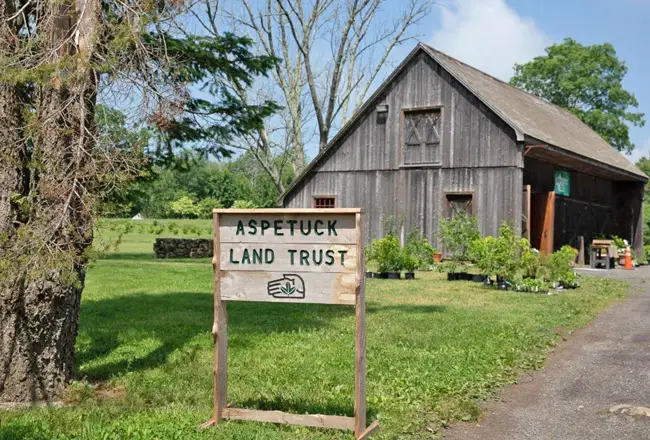Pace University”™s Lubin School of Business is carving out a niche for itself in the crowded field of polling.
Numerous commercial polling organizations and institutions of higher learning are cranking out surveys of what people think about subjects as divergent as whether they prefer Donald Trump or Barack Obama (60% Obama, 42% Trump, by Fox News) or have a positive view of the movie industry (42% of Americans do, by Gallup Inc.).
Pace, however, has decided to focus on business as it enters the world of pollsters.
The Pace Business Poll has launched in partnership with The Business Council of New York State and The Business Council of Westchester. It grew out of a concept created by the Lubin School of Business in conjunction with the Center for Student Enterprise at Pace, which is headquartered on the Pleasantville campus. The center provides a home for several student-run businesses, including Pace Connect, a student-run research and call center.
The first poll in what the founders plan as a twice-yearly series focused on the impact of the pandemic on business in Westchester, Rockland, Long Island and New York City and the businesses”™ plans for the future.
The director of the Pace Business Poll, Kathy Winsted, is an associate professor of marketing and director of the Center for Student Enterprise. She said that students who were active in the research and call center had expressed an interest in using Pace Connect for conducting polls.
“They mostly do research for Pace departments. They do research for the career services department, for alumni relations, other departments on campus and they have been wanting for quite a while to do a poll,” Winsted told the Business Journal.
“They developed the plan for this Pace Business Poll with help from a number of professors and deans. They developed the first round of questions. It was then edited by The Westchester Business Council, The Business Council of New York State as well as our dean”™s office, myself, so it was a group effort to put the questions together.”
Winsted said that while respondents can answer questions online, students have done outbound calling, sent emails and conducted interviews to gather data.
“We have a few open-ended questions to try to get opinions and ideas and learn more in-depth qualitative information so they”™ve been analyzing all of that and categorizing it and talking about it in their report,” Winsted said. “They”™ve done an initial draft report. They have now left for the summer so I will be finalizing it, but it is a student enterprise.”
“We want the Pace Business Poll to be a standard thing,” Winsted said. “We”™re assuming that as we move forward word gets out through the Westchester County Business Journal and other sources where we”™ll get out that Pace does this survey, that you should get your voice heard, that you should be part of this survey, help us to understand local business and that it will get easier and easier as we get better known to get the responses.
“We want it to be an ongoing thing that will link Pace to the communities that we”™re in as well as establish some expertise that people will begin to count on for information about local area businesses.”
Winsted noted that the dean of Pace”™s Lubin School of Business, Lawrence G. Singleton, is very much on board with the polling program. He had served as dean of the School of Management at Marist College in Poughkeepsie. That college is known by many for the Marist Poll, which covers a variety of subjects from politics to one released on June 11 showing that 92% of Americans put a topping on their hot dogs with 47% preferring mustard and 30% favoring ketchup.
Sneak peek
Winsted provided the Business Journal with a preview of what the initial Pace Business Poll has found, although there will be additional study of the data and comments received.
“We have found that almost every business made some changes during the pandemic, but that many businesses, the majority, in fact, feel that they”™re stronger after the pandemic instead of weaker.
“They”™ve learned things from the pandemic and they plan to change procedures moving forward. They plan to keep some of the procedures that they”™ve changed like more people working from home as really the most common area, more use of technology moving forward, so they have found that they can do remote working and be productive; they found that technology can help them,” Winsted said.
“Many of the companies that we interviewed said … they”™ve used technology to improve their processes, to speed up what they”™re doing and they”™ve learned a lot from that.”
Winsted said that while the Pace Business Poll will grow in significance for the business community, it also will grow in importance for the lessons Pace students will learn that they can apply in their vocations after graduation.
“There are so many: how to communicate with professionals; how to sound professional; how to be professional; the emailing skills, the data analysis skills are huge; the survey writing skills and how to ask questions without bias,” Winsted said. “They”™re learning a lot about presenting results as well.”
Randi Priluck, associate dean of undergraduate programs at the Lubin School of Business said that the proposal to move forward with the poll was very well received by the school”™s administration.
“These skills are crucial in almost any career these days, so having the students get firsthand experience with data analysis is very good for them and in running a business,” Priluck said, adding that working at the Pace Connect center or other student-run businesses provides unique experiences.
“So many jobs they”™ll go into are business-to-business jobs, so they”™ll already have experience dealing with clients, dealing with adults, learning the language of the business, running research and the importance of that, so it really provides them a lot of opportunities when they go out in their careers,” Priluck said. “They”™re some of our most sought-after students because they have this real-world experience.”
Priluck commented that it”™s possible in the future that the scope of subjects covered in Pace polling might be broadened.
“Right now we”™re thinking strictly business and focusing on the recovery but it”™s very possible that this could be expanded to do more and different kinds of polls and get more students involved,” Priluck said.
“We wouldn”™t do a political poll because we”™re a business school and we think that the value for us is not in politics or political polls but in business-related polls. Consumer sentiment types of things might fit with that and other business-related polling could work as well.”





















